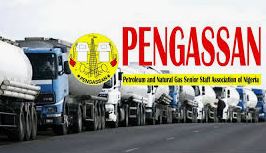PENGASSAN renews call for divestment in refineries

…Urges transparent marginal field development, condemns anti-union practices in oil sector
By Johnbosco Agbakwuru
ABUJA –IN a clarion call for urgent reforms, strategic divestment, and technical competence to unlock Nigeria’s full oil and gas potential and secure sustainable growth for the industry and the country, the Petroleum and Natural Gas Senior Staff Association of Nigeria, PENGASSAN, has called for the urgent need to revive Nigeria’s refineries and boost crude oil production.
President of PENGASSAN, Comrade Festus Osifo, in his address on the second day of the 4th PENGASSAN Energy and Labour Summit, PEARLS 2025, in Abuja, insisted that “the refinery must work.”
His speech came amid wider discussions at the summit about policy stability, investment climate, and safety measures critical for Nigeria’s oil and gas future.
Osifo’s keynote reiterated the necessity of stable policies, effective governance, and collaborative efforts to build a resilient sector and ensure the welfare of the workforce.
In his words, “Yes, the refinery should work… but government must divest. Let them have minority shares and bring in refinery experts who know how to manage the plants. We have what it takes in Nigeria; we just need proper support and the right model to succeed.”
He advocated for a new operational model where the government retains minority shares while private sector companies with refinery expertise take majority control.
“We have said this countless number of times… bring the refinery to work. It is okay, but when the refinery is working, you divest,” Osifo stated.
The PENGASSAN President emphasized the importance of bringing in companies skilled in refinery operations, not those focused on other industries, noting that Nigeria has sufficient human resources to operate refineries effectively, but they are often hampered by lack of proper tools and political interference.
Osifo drew a parallel with the Nigeria NLNG model, explaining, “In NLNG today, governments have 49 percent shares; the rest is held by companies like E&I, Shell, and Total Energy with 51 percent. Majority decisions are taken by the private sector.”
This, he said, is the model Nigeria should replicate for refinery operations to reduce politics and increase efficiency.
Highlighting the vast oil reserves Nigeria possesses, Osifo noted that “we have over 37 billion barrels of crude,” but current production is around two million barrels per day, which means it would take over 50 years to fully exploit the reserves.
“Effort must be put in place to increase our production,” he urged, adding that boosting production is key to generating resources for national development, akin to how Dubai was developed using government funds from Abu Dhabi.
Osifo praised recent efforts toward transparency in the marginal field bid rounds, describing the latest as “one of the most transparent marginal bid ramps ever done in Nigeria.”
He criticized past practices where oil blocks were given to influential individuals without technical expertise, leading to underutilized fields.
“If you have the technical expertise and the financial muscle, you will be able to contribute to the growth and development of the oil and gas company in Nigeria,” he declared.
Addressing labour issues, Osifo raised concerns about companies preventing workers from joining unions.
“This is 2025, and we still have companies indulging in this. We wish to let them understand that they should desist, or we will surely come after them,” he warned.
The post PENGASSAN renews call for divestment in refineries appeared first on Vanguard News.







